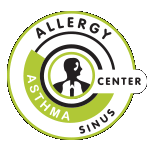How Mild Winters Bring Early Spring Allergy Symptoms
Let It Snow
A mild winter can mean trouble for Central Georgians who suffer from allergies. Lack of cold weather means the plants pollinate earlier in the year, and a rainy spring will mean faster plant growth and higher mold counts. Anyone with pollen or mold allergies will probably feel the symptoms early in the year!
Pollen and mold are just a few of the many allergens that can lead to the symptoms of allergy. Symptoms may include sneezing, itching, watery eyes, drippy noses, congestion, swelling, coughing or wheezing. Normally the immune system protects our bodies from harmful invaders like bacteria and viruses. In people with allergies, the immune system is distracted by an otherwise harmless substance (also called an “allergen”).
Allergists can discuss alternative treatment options that actually fix the problem, rather than putting a 'band-aid' over the symptoms.
You might also like
TRUST THE EXPERTS
All physicians board-certified in allergy and immunology

All Rights Reserved | The Allergy, Asthma & Sinus Center



